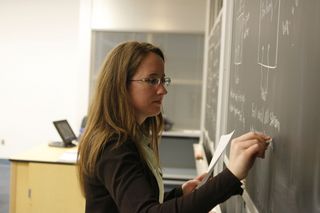All Lithuanian schools in Poland that have been risking closure due to insufficient funding will receive the necessary funding
Published:
24 June 2003 y., Tuesday
All Lithuanian schools in Poland that have been risking closure due to insufficient funding will receive the necessary funding, according to a leading Polish-Lithuanian lobbyist.
Irena Gasperaviciute told Baltic News Service on Thursday that the Polish Ministry of National Education and Sport has allocated 880,000 zloty (200,000 euros) for schools with instruction in Lithuanian.
Currently there are eight such schools in Poland, located in the towns of Sejny and Punsk.
In Punsk Lithuanians comprise 80 percent of the population, and in Sejny the make up one-third of city residents. Of the eight schools with Lithuanian instruction five are threatened with closure since the local administration was unable to finance their upkeep and pay teachers’ salaries.
To protest the schools’ predicament, the Lithuanian community in the two towns hung Polish flags with black bands outside the schools.
Both Lithuanian and Polish schools were informed of the situation, and together the two sides reached an agreement whereby Warsaw would provide finance.
According to the latest Polish census there are only 6,000 Lithuanians living in Poland, while the Lithuanian community claims the real number is closer to 20,000.
Šaltinis:
The Baltic Times
Copying, publishing, announcing any information from the News.lt portal without written permission of News.lt editorial office is prohibited.
The most popular articles

The European Commission announced today the award of three of the six contracts for the procurement of Galileo’s initial operational capability.
more »
 A European monitoring system that can detect floods and help target help in natural disasters like in Haiti is being discussed by MEPs.
more »
A European monitoring system that can detect floods and help target help in natural disasters like in Haiti is being discussed by MEPs.
more »
 The World Bank, supported by the Global Facility for Disaster Reduction and Recovery (GFDRR), announced today that it has mobilized scientists and technical experts around the world to help assess the impacts of the earthquake in Haiti.
more »
The World Bank, supported by the Global Facility for Disaster Reduction and Recovery (GFDRR), announced today that it has mobilized scientists and technical experts around the world to help assess the impacts of the earthquake in Haiti.
more »
 The Spanish Minister of Education, Ángel Gabilondo, speaking in the Culture, Education and Youth Committee of the European Parliament, insisted on the importance of strengthening the idea of a Social Europe by means of a new link between the economy and education, one of the basic pillars of the Spanish Presidency's proposals in the area of education.
more »
The Spanish Minister of Education, Ángel Gabilondo, speaking in the Culture, Education and Youth Committee of the European Parliament, insisted on the importance of strengthening the idea of a Social Europe by means of a new link between the economy and education, one of the basic pillars of the Spanish Presidency's proposals in the area of education.
more »
 The EU’s goal of stopping animal and plant extinctions by 2010 has not been reached. Now more action is planned – for proper long-term protection of biodiversity by 2020.
more »
The EU’s goal of stopping animal and plant extinctions by 2010 has not been reached. Now more action is planned – for proper long-term protection of biodiversity by 2020.
more »
 Climate change and biosecurity were the focus of the EU stand at this year's BT Young Scientist exhibition, which took place in Dublin this month.
more »
Climate change and biosecurity were the focus of the EU stand at this year's BT Young Scientist exhibition, which took place in Dublin this month.
more »
 Meas Sokhunthea, a shy 8th grade student at Preah An Kosa secondary school in Siem Reap town, has wanted to be a teacher since she was a little girl.
more »
Meas Sokhunthea, a shy 8th grade student at Preah An Kosa secondary school in Siem Reap town, has wanted to be a teacher since she was a little girl.
more »
 The European Commission announced today the award of three of the six contracts for the procurement of Galileo’s initial operational capability.
more »
The European Commission announced today the award of three of the six contracts for the procurement of Galileo’s initial operational capability.
more »
 The European Commission has presented the results of the first-ever survey on creativity and innovation in schools.
more »
The European Commission has presented the results of the first-ever survey on creativity and innovation in schools.
more »
 The European Year of Creativity and Innovation 2009 is coming to an end with a closing conference organised today in Stockholm by the European Commission and the Swedish Presidency.
more »
The European Year of Creativity and Innovation 2009 is coming to an end with a closing conference organised today in Stockholm by the European Commission and the Swedish Presidency.
more »
 At the Council meeting on 15 December in Brussels, the EU agriculture and fisheries ministers discussed animal welfare labelling and better protection for laboratory animals, and reached an agreement on rules against illegally logged timber.
more »
At the Council meeting on 15 December in Brussels, the EU agriculture and fisheries ministers discussed animal welfare labelling and better protection for laboratory animals, and reached an agreement on rules against illegally logged timber.
more »